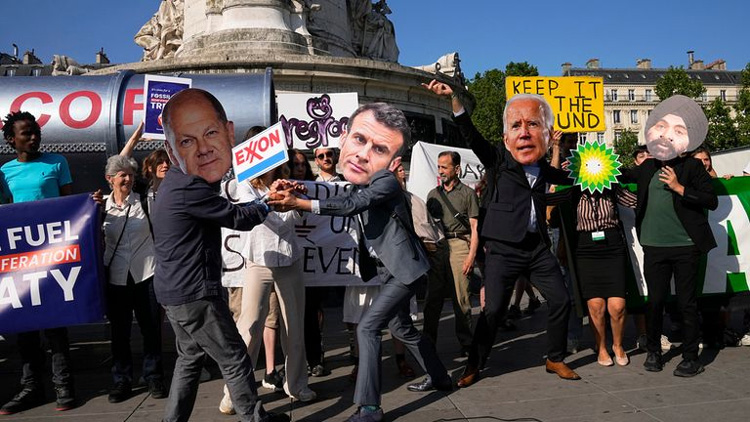Debt pause for vulnerable nations affected by climate change agreed in Paris
In a major step forward, the World Bank has agreed for introduce new Climate Resilient Debt Clause that pauses debt repayment for climate disasters.
The decision was announced at the end of a New Global Finance Pact summit in Paris for easing poor countries’ debt and unlocking more climate financing.
The summit also agreed for a roadmap to achieve new global climate financing deals that can help the poor and vulnerable countries to deal with the climate induced disasters.
It was also decided that the new climate finance roadmap will be discussed at the meeting of global leaders at forthcoming G20 and Conference of Parties (CoP) 28 summits.
India is hosting the G20 summit in New Delhi in September and CoP 28 is being held in Dubai.
At the conclusion of the summit hosted by French President Emmanuel Macron, countries and institutions pledged raft of measures to raise finance and assist poor countries.
Several major economies including Japan and France will provide money to the poor nations through International Monetary Fund (IMF) to be called “special drawing rights” allowing the vulnerable nations to take the money to fight climate change induced disasters.
The World Bank also announced that it will allow repayment pause clause for loans given to the poor and climate vulnerable nations. However, this will apply only to the new loans.
World Bank president Ajay Banga said the clauses would allow countries hit by climate disasters to “focus on what matters to their leaders when a crisis hits and stop worrying about the bill that’s going to come”.
The UK also said it would apply similar arrangements to its loans to 12 countries in Africa and the Caribbean.
Several island nations such as Barbados welcome the commitment to new clauses saying nobody was talking about them nine months ago.
The summit for New Finance Pact also issued a statement that in all “likelihood” the rich countries will reach its target of annual US $100 billion climate finance this year.
In the past climate experts from the developing countries have questioned the claims of rich countries of having met the pledge of US $ 100 billion every year saying the pledge was for public funding and not private investments.
Harjeet Singh, head of global political strategy at Climate Action Network International, said the roadmap from the Paris Summit acknowledges the urgency for substantial financial resources to bolster climate action but it leans too heavily on private investments and ascribes an outsized role to multilateral development banks.
“In doing so, it overlooks the pivotal role that public finance must play in driving policy transformation, stimulating research and development, and investing in green infrastructure to mobilize trillions of dollars. Private investments often neglect adaptation efforts in developing countries and are inadequate to address climate-induced loss and damage,” he said.
However, some international experts said the breakthrough at the Paris summit helps to mobilise increased levels of climate finance.
Saleemul Huq, the director of the International Centre for Climate Change and Development, in Bangladesh said a step forward has been taken on climate finance, a key to meet 2015 Paris climate agreement goalposts. “The key to me is for every leader to deliver what he or she promises,” he said.


Comments are closed.